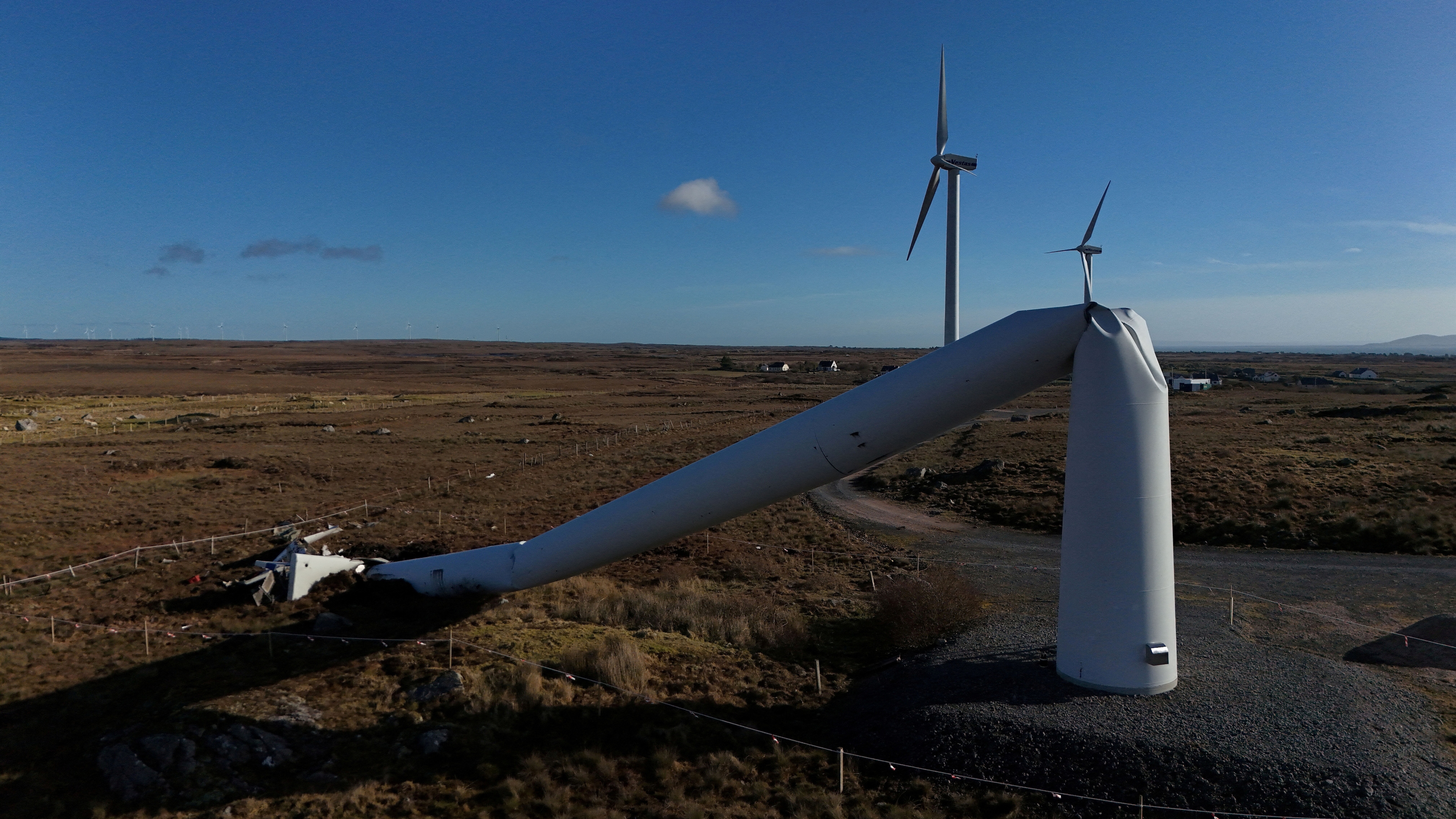The top nature and climate stories of 2024

What nature and climate stories have captured our attention this year?
Image: Unsplash/NASA
- It's been a busy year for nature and climate news in 2024.
- From the breaching of planetary boundaries to progress in tackling the plastics problem, here are some of our must-read stories from the past 12 months.
1. Seven of nine planetary boundaries breached
Scientists issued a red alert for the health of the planet, in a first-of-its-kind report.
There are nine key systems and processes that contribute to stable, healthy life on Earth for all organisms. Currently, six of them have crossed the threshold where they are considered incapable of functioning properly.
Only three planetary boundaries remain within the "safe operating space": ocean acidification; atmospheric aerosol loading; and stratospheric ozone depletion.
2. Environmental records were broken
With each passing month, more and more heat records were set.
2024 marked the first year on record that temperatures exceeded 1.5°C above pre-industrial levels, surpassing the threshold set by the Paris Agreement.
Scientists declared it "virtually certain" that 2024 will be the warmest year on record, according to analysis from Copernicus, the European Union's Climate Change Service.
Across the global oceans, the first 10 months of the year also saw record-warm sea surface temperatures.
3. Extreme weather experienced around the world
From Hurricane Milton to Valencia's floods to landslides in Indonesia, our changing weather systems have left few geographies untouched over the past year.
These examples highlight the growing urgency for countries worldwide to invest in climate mitigation.
Indeed, investing in climate mitigation is far more cost-effective than the potential 17% hit to GDP that unchecked climate change could cause.
Innovative solutions and technological advancements can help to mitigate the risks and protect both people and infrastructure. From smarter city planning to cutting-edge technologies, here are five ways communities are managing the increasing threat of floods.
One session from the World Economic Forum's 2024 Annual Meeting of the New Champions brought together a panel of experts to discuss what global collaboration is needed to meet the humanitarian challenge and build resilience.
4. A triple-COP year
2024 saw three climate change conferences – COPs – which focused on the overlapping and connected issues of climate change, biodiversity and land.
Climate finance and carbon markets took centre stage at COP29, the first ever “Finance COP”.
Participating nations agreed to mobilize $300 billion of climate finance, falling short of the trillion-dollar figure demanded by developing countries.
So what else was on the agenda?
- A global architecture for carbon markets was established.
- Ambitious and investable nationally determined contributions were outlined.
- Despite discussion, the final outcome did not make explicit reference to the "transitioning away from fossil fuels" phrase agreed at COP28.
Learn more in this article from the Forum's Pim Valdre and Laia Barbarà.
Accept our marketing cookies to access this content.
These cookies are currently disabled in your browser.
5. New approaches aiding climate adaptation
Businesses that fail to adapt to climate risks could lose up to 7% of earnings by 2035, according to findings from two new Forum reports -- one in collaboration with leading Earth system scientists (including Johan Rockstrom) and the other from the Alliance of CEO Climate Leaders.
Climate hazards could drive $560-610 billion of fixed asset losses per year across listed companies by 2035, depending on the emissions scenario, rising as high as $1.1 trillion by 2055.
The reports detail the rising cost of climate action and how board members, investors and C-suite executives can promote business longevity and resilience in the face of a deteriorating climate. Read our summary articles below.
6. Deforestation in Brazil's Amazon rainforest falls
Deforestation in the rainforest fell 30.6% in the 12 months through July compared to the same period a year prior, according to government data released on Wednesday reported by Reuters.
This marks the area's lowest level of deforestation since 2015.
Protecting the Amazon rainforest and its rich biodiversity is of vital importance. Deforestation and climate change are increasingly affecting the health of 'flying rivers' in the Amazon.
Flying rivers are massive areas of water vapour, and in the case of the Amazon, a vital part of the water cycle for Latin America’s 670 million people, as well as the region’s unique biodiversity.
7. Progress on tackling the plastic pollution problem
Though significant hurdles remain, the fifth session of the Intergovernmental Negotiating Committee (INC-5) laid the groundwork for continued negotiations, with the finalization of the treaty now targeted for INC-5.2, expected in the first half of 2025.
What is the World Economic Forum doing about plastic pollution?
Accept our marketing cookies to access this content.
These cookies are currently disabled in your browser.
8. Wildlife populations have declined by 73% since 1970
Nature is disappearing.
That's the key takeaway from the Living Planet Report 2024 from the World Wide Fund for Nature (WWF).
Across 5,495 vertebrate species, a decline of 73% between 1970 and 2020 has been reported.
The report identifies key tipping points in ecosystem collapses:
- The mass die-off of coral reefs would destroy fisheries and storm protection for coastal communities.
- The collapse of the subpolar gyre, a circular current south of Greenland, would change weather patterns in Europe and North America.
- The melting of ice sheets would cause sea level rise, while large-scale thawing of permafrost would release vast amounts of greenhouse gases.
Related topics:
Contents
1. Seven of nine planetary boundaries breached2. Environmental records were broken3. Extreme weather experienced around the world4. A triple-COP year5. New approaches aiding climate adaptation6. Deforestation in Brazil's Amazon rainforest falls7. Progress on tackling the plastic pollution problem8. Wildlife populations have declined by 73% since 1970More on Climate ActionSee all
Michael Fröbel and Stanislas Hillen
August 8, 2025
Elizabeth Henderson and Daniel Murphy
August 8, 2025
De Rui Wong and Keebum Kim
August 7, 2025
Aurora Matteini and Derek Baraldi
August 6, 2025
Tom Crowfoot
August 5, 2025
Sverre Alvik
August 5, 2025













